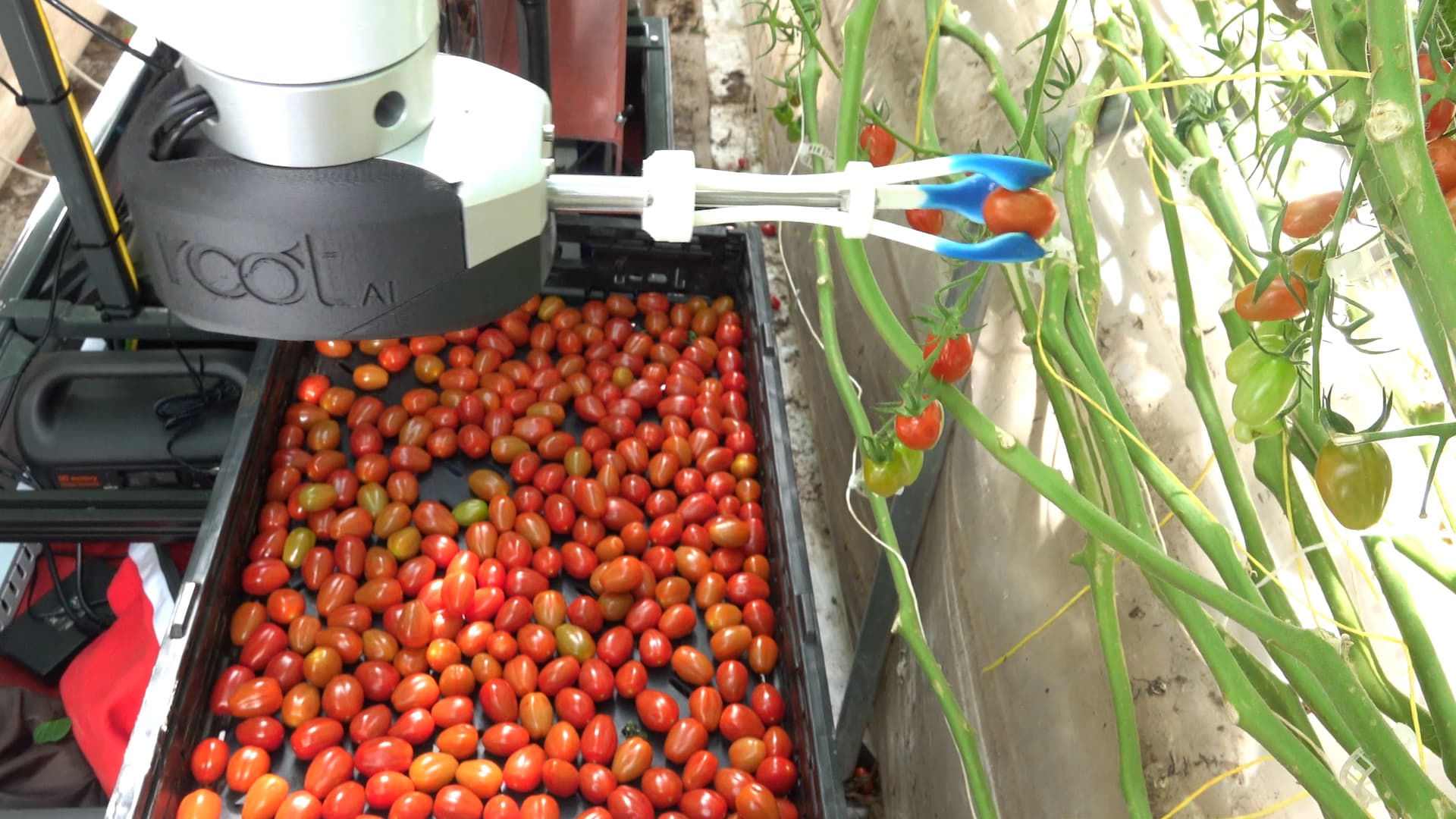This robot can pick tomatoes without bruising them and detect ripeness better than humans - 3 minutes read

Farmers spend more than $34 billion a year on labor in the U.S., according to the USDA. And many would like to hire more help. But the agriculture industry here faces labor shortages, thanks in part to the scarcity of H2B visas, and an aging worker population. Older workers can't necessarily handle the hours or repetitive physical tasks they once might have.
That's where Root AI, a start-up in Somerville, Massachusetts, comes in. The company's first agricultural robot, dubbed the Virgo 1, can pick tomatoes without bruising them, and detect ripeness better than humans.
The Virgo is a self-driving robot with sensors and cameras that serve as its eyes. Because it also has lights on board, it can navigate large commercial greenhouses any hour of the day or night, detecting which tomatoes are ripe enough to harvest. A "system-on-module" runs the Virgo's AI-software brain. A robotic arm, with a dexterous hand attached, moves gently enough to work alongside people, and can independently pick tomatoes without tearing down vines.
The robot's "fingers" are made of a food-safe plastic that's about as flexible as a credit card, and easily cleaned. Josh Lessing, founder and CEO of Root AI, says that easy-to-clean trait is important.
"People don't think about this -- you have to manage disease on a farm. Just as if I picked with my own hands, there's a risk of spreading around mold, viruses or insects with a robot. That's why you want these to be washable. It is part of the work you do to keep the plants safe."
Virgo robot picks tomatoes.
Root AI
One of the most unique things about the Virgo, he notes, is that the company can write new AI software and add additional sensors or grippers to handle different crops. "It's a complete mobile platform enabled to harvest whatever you need," says Lessing.
In this way, the Virgo is a departure from other crop-specific harvesting machines on the market and in development, like Abundant Robotics' apple picker, Agrobot's strawberry picker, and Sweeper's pepper-picker.
The Virgo has been tested at commercial greenhouses, including in the U.S. and Canada already. And Root AI has raised funding from noteworthy venture firms, including Accomplice, First Round, Half Court, Liquid2 and Schematic.
Lessing expects to see the Virgo in broad commercial use next year, and to develop new software that enables it to pick other high-value crops like cucumbers, strawberries and peppers after that.
For more on tech, transformation and the future of work, join CNBC at @ Work: Human Capital + Finance Summit in Chicago on July 19.